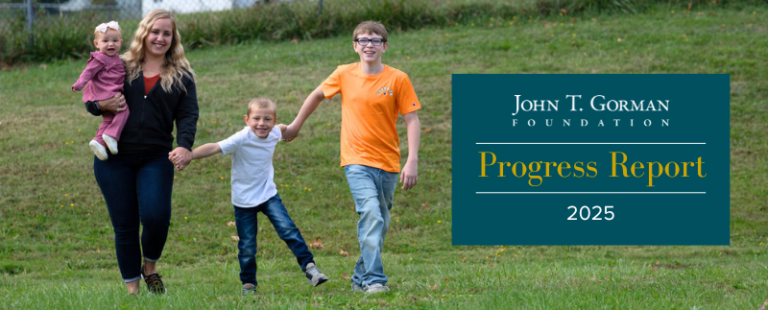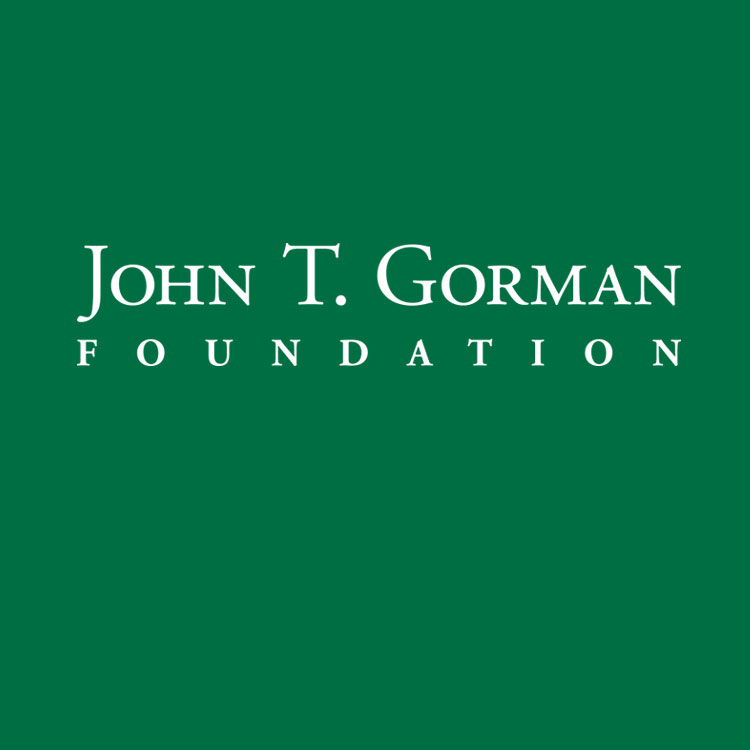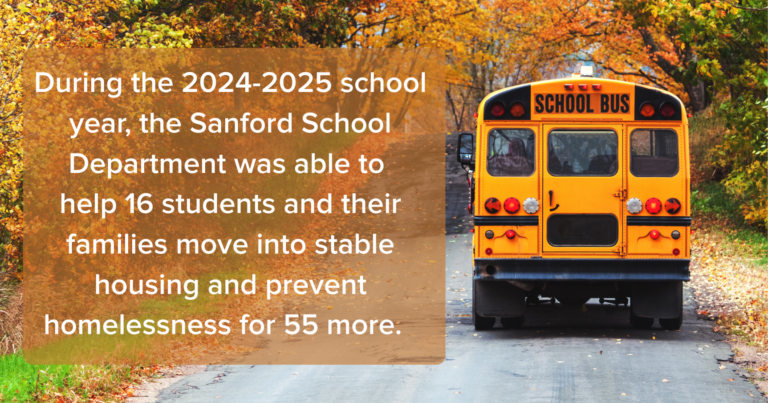To strengthen the well-being of children and families, the John T. Gorman Foundation looks to the latest data to track needs and assess where strategies can have the greatest impact.
This Data Snapshot highlights recent findings on the mental health of children and families in Maine. In short, the state continues to see some of the highest mental health needs in the country, showing the importance of increasing access to treatment and support for children as well as their caregivers. But the data also reports the presence of protective factors that could form a foundation of resilience within families. Here are the some of the important takeaways.
Maine children continue to face some of the nation’s highest rates of mental health needs
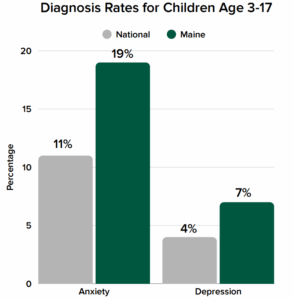
- 19% of Maine children ages 3-17 have been diagnosed with anxiety – the highest rate in the nation and well above the national rate of 10.7%.
- 7% of Maine children have been diagnosed with depression – the second highest in the nation.
- Average wait times for children’s behavioral health services range from 51 days in Sagadahoc County to 214 in Piscataquis County, according to the Maine Office of Child and Family Services.
High numbers of mothers in Maine are experiencing challenges to their mental health
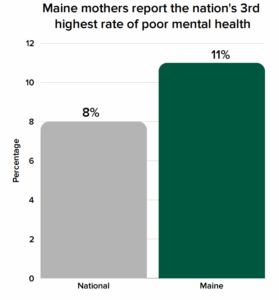
- 11% of Maine mothers reported fair/poor mental health in 2022-2023, the third highest in the country. This increased from 8.5% in 2021-2022.
- 22% of those giving birth in Maine in 2022 reported depression in the three months before pregnancy, 16% during pregnancy, and 10% post-partem.
- Perinatal depression rates are closely tied to income. Those with lower incomes experience significantly higher rates of depression before, during, and after pregnancy.
Even amid challenges, many families report strong protective factors
Positive social connections can help buffer the effects of stress and trauma on children, caregivers, and families – forming a foundation of resilience.
- 84% of Maine parents report having someone to talk to for emotional support with raising children, versus 75% nationally.
- On four factors of family resilience (talking about problems, working together, drawing strength from each other, and staying hopeful), 86% of Maine respondents reported using all four to deal with adverse situations, among the higher rates in the country.
From Statistics to Strategies
With mental health being a critical component of child well-being, expanding access to treatment and support has been a priority for the John T. Gorman Foundation. We have worked with partners to implement several innovative strategies across Maine in recent years. Examples include a grant to help expand the use of a highly effective behavioral health treatment for children and families in Maine, our work with Bangor Housing to provide low-barrier mental health supports to mothers, embedding supports for children in the community, and supporting two-generation programs where families learn strategies to further build their resilience.
As Maine looks for effective ways to improve children’s mental health statewide, we continue to monitor these initiatives to see which strategies have the greatest impact, how they can be strengthened, and what lessons they hold for practitioners and policymakers.
Data Sources:
National Survey of Children’s Health, 2022-2023
2025 Perinatal Mental Health in Maine Report, Maine CDC
Office of Child and Family Services Children’s Behavioral Health Dashboard (January 2025 numbers)

